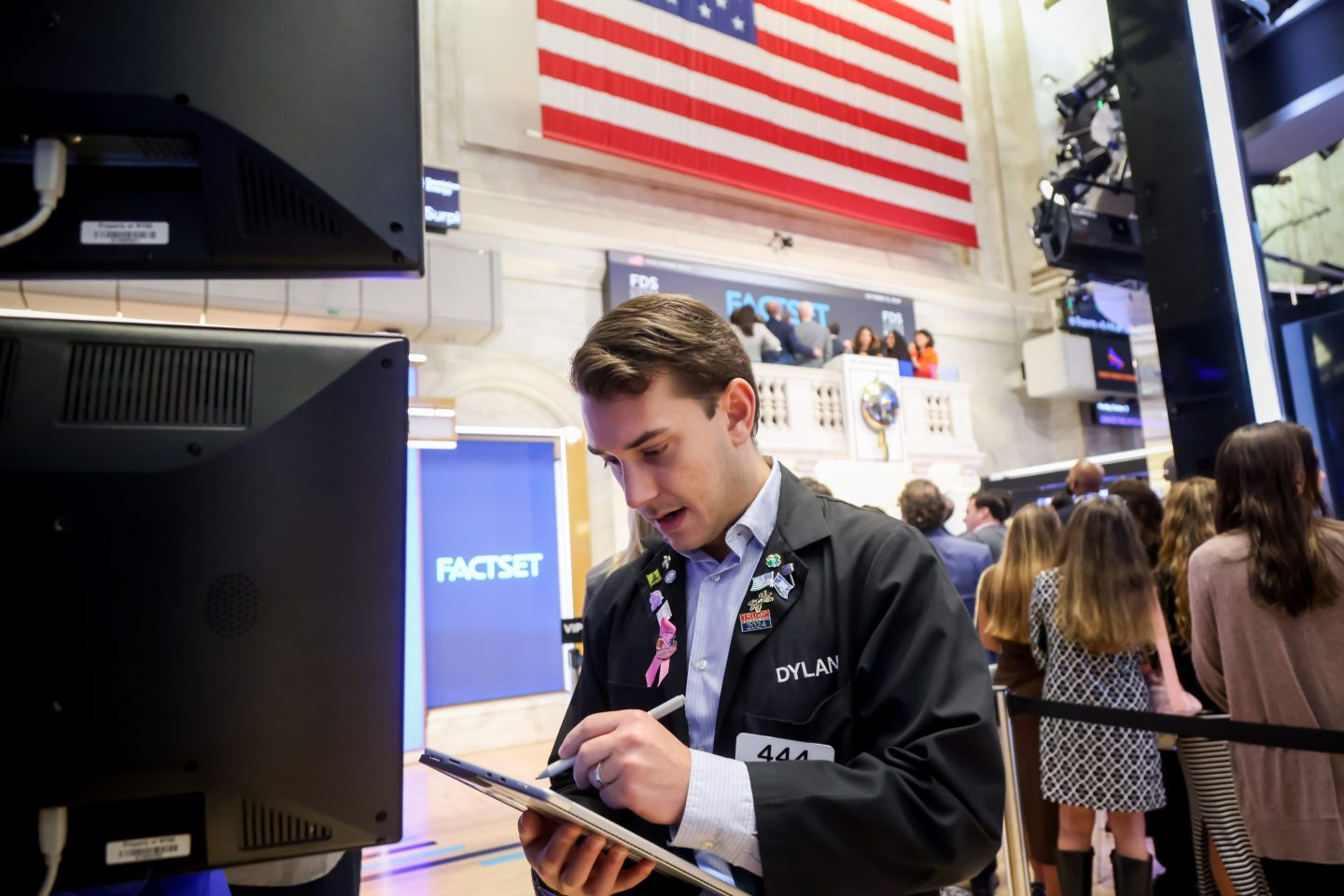A top Wall Street analyst who has been predicting a “rolling recovery” after a mysterious, secretive “rolling recession” over the past three years has issued a bearish call on the back of renewed trade tensions between President Trump and China. Mike Wilson, chief U.S. equity strategist for Morgan Stanley, warned on Monday that a “larger than expected correction is likely” for U.S. equities if Trump and China fail to resolve their escalating trade tensions, as mounting uncertainty threatens the fragile early-stage bull market that began earlier this year.
Recent weeks have seen a sharp return of volatility to U.S. stock markets, with analysts at Morgan Stanley highlighting that a sudden escalation in the U.S.-China trade dispute has become the catalyst for the weakest index-level performance since the spring. Despite prior optimism for a deal following productive discussions at the APEC summit, talks have soured. On Friday, markets witnessed aggressive selling, especially in stocks with heavy exposure to China, as investors digested the sudden news of, on the one hand, China’s purported tightening of rare earth mineral controls, and on the other, a retaliatory 100% tariff on Chinese products from the social media pen of Trump.
Wilson wrote on Monday that a correction was “overdue” because of stretched valuations, overly optimistic positioning, and an unfavorable season. “If we don’t see near-term de-escalation, we think a larger than expected correction is likely,” Wilson cautioned, pointing to the unwinding of crowded trades and defensive rotation as signs that institutional and retail investors are jittery. Wilson believes that, should the current trade fight persist into November, the S&P 500 could see declines of 10% to 15%, with certain sectors hit even harder.
Why escalation has markets on edge
Trade policy uncertainty is proving to be a leading driver of equity volatility. Previously, in early 2025, a détente between Washington and Beijing set the stage for stocks to rally—now, the opposite looks possible. “If we march toward November 1 without a resolution, markets are likely to trade poorly,” Morgan Stanley’s report cautioned, emphasizing weak global dollar liquidity as another risk amplifying the potential for a selloff.
The breakdown in talks affects some sectors more than others. Semiconductors, quantum computing firms, and “crowded stocks” with direct China exposure are seen as particularly vulnerable to a sharper correction. Consumer discretionary stocks face risks owing to their dependence on imports and the direct cost impact of tariffs. Meanwhile, Morgan Stanley continues to favor defensive sectors, such as health care and the so-called quality factor, as hedges against ongoing policy uncertainty.
Wilson wrote that his team thinks the correction will be larger than most expect if the trade war isn’t ratcheted down, citing conversations with various market participants. Wilson reiterated his view that the bull market is early in its cycle, not late, with recession risk in the rear view, including “the historic velocity of this recovery in stocks and earnings revisions since April.” The current pullback could reflect a “healthy correction,” he added, with the risk that it intensifies over the next several weeks.
What could calm the storm?
Wilson and his team stress that if President Trump and Beijing can “kiss and make up”—potentially with China easing some export curbs and the U.S. scaling back proposed headline tariffs—the worst can be avoided. However, absent such a move, the correction could be amplified by both technical factors (such as S&P 500 support levels) and negative feedback loops in sentiment and corporate earnings revisions.
“If associated trade uncertainty and volatility continue into early November, we could see a larger correction than most are expecting—10%–15% in S&P 500 terms, based on key retracement and moving average levels,” the analysts write. Their base case assumes that recovery will resume once uncertainty subsides. Still, they are quick to note that the early-cycle bull market thesis is at real risk if trade escalation persists, threatening global supply chains and market stability.
Trump’s TACO tune
Happily for traders, Wilson’s advice already looks to have been followed by the administration on Sunday and into Monday. Part of what rattled markets so much on Friday was Trump’s implied threat to cancel his meeting with China’s Xi Jinping in a few weeks’ time—Trump backed off that in the next several days.
On Sunday, Trump was singing a different tune, recalling traders’ favorite strategy from the spring, memorably dubbed the “TACO” trade by the Financial Times’ Unhedged newsletter author Robert Armstrong: “Trump always chickens out.” That seemed to play out in near record time over the weekend, as Trump beckoned to markets: “Don’t worry about China.” Dow futures jumped 400 points on Sunday night and locked in those gains and more within five minutes of trading on Monday, climbing over 560 as of press time.
At the same time, leaders are beginning to wake up to the tremendous trump card China possesses in the form of rare earth materials. Wharton professor Jeremy Siegel told Fox Business on Monday that “it’s scandalous that we don’t have a rare earth strategic reserve.”
Meanwhile, on Monday, JPMorgan CEO Jamie Dimon announced a $1.5 trillion, 10-year plan to invest in companies with direct ties to national security. “It has become painfully clear that the United States has allowed itself to become too reliant on unreliable sources of critical minerals, products, and manufacturing—all of which are essential for our national security,” Dimon said in a statement. “Our security is predicated on the strength and resiliency of America’s economy. America needs more speed and investment.”












